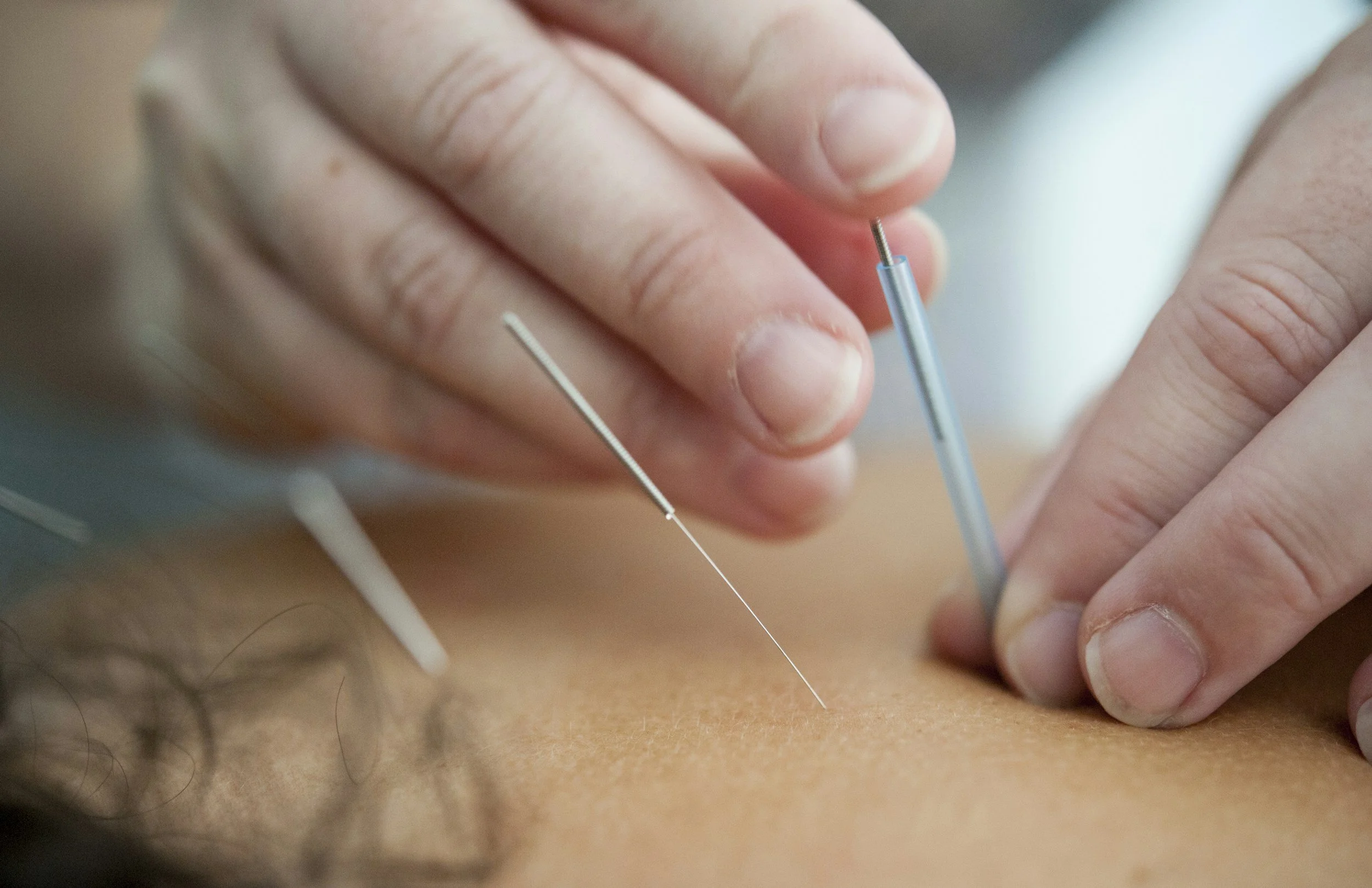
A mechanical technique using fine needles to disrupt tissue, stimulate healing, reduce adhesions, and blunt pain.
Dry Needling: An Advanced Approach to Pain Relief and Recovery
At Advanced Manual Therapies, we’re proud to offer Dry Needling, a modern, evidence-based treatment designed to alleviate pain and improve function for a wide variety of neuro-musculoskeletal conditions. Unlike other modalities, Dry Needling targets the root causes of pain, promoting tissue healing, neuromodulation, and overall well-being.
What is Dry Needling?
Dry Needling involves the use of fine, monofilament needles inserted into muscles, ligaments, tendons, scar tissue, and nerves to stimulate the body’s natural healing processes. The term “dry” refers to the absence of medication within the needle, minimizing the risk of side effects commonly associated with injections or oral medications.
This technique is backed by science and performed by trained professionals like Doctors of Physical Therapy (DPTs) and physicians (MDs/DOs). By targeting areas of dysfunction or injury, Dry Needling encourages a localized inflammatory response that helps restore healthy tissue structure, reduce pain, and enhance mobility.
How Does Dry Needling Differ from Acupuncture?
While both Dry Needling and acupuncture use similar tools, their purposes and methodologies are distinct:
Acupuncture: A traditional Chinese medicine practice aimed at restoring the balance of energy (Qi) along meridian channels.
Dry Needling: A medical intervention focused on addressing musculoskeletal pain and dysfunction by targeting specific anatomical structures.
Dry Needling is more localized, often directed at the precise site of pain or injury, rather than following the meridian pathways used in acupuncture.
Conditions Dry Needling Can Improve
Dry Needling is effective for a range of conditions, including:
Muscle Pain and Trigger Points: Knots or areas of tension in muscles causing pain and discomfort.
Chronic Pain: Conditions like fibromyalgia or long-term tendonitis/tendinosis.
Nerve Pain: Issues such as sciatica or other referred pain.
Joint Pain: Osteoarthritis in the shoulder, hip, or knee.
Headaches: Cervicogenic and tension-type headaches.
Injuries: Sports injuries, impingements, and mechanical pain.
Whether you’re an elite athlete, a busy professional, or someone managing chronic conditions, Dry Needling can be tailored to meet your specific needs.
Is Dry Needling Right for You?
If you’re experiencing symptoms such as muscle tension, joint pain, nerve pain, or chronic discomfort, Dry Needling may be an excellent treatment option. It’s often recommended for individuals who haven’t found relief through other modalities or prefer a more natural, drug-free approach to healing.
Patients may feel minor discomfort during the procedure, similar to a moderate workout. Post-treatment soreness is typically mild and resolves within 12-24 hours.
Why Choose Dr. Grant and Advanced Manual Therapies?
When it comes to Dry Needling, expertise matters. While many therapists perform Dry Needling with minimal training (two weekend courses being the minimum requirement in Georgia), Dr. Grant has set the gold standard with unparalleled qualifications:
Advanced Training: Dr. Grant completed a year-long post-doctorate program in Dry Needling, earning a Diploma in Osteopractic.
Specialist Certification: He is a board-certified specialist in orthopedic manual physical therapy and achieved the prestigious status of Fellow.
Instructional Expertise: As an Assistant Instructor with the Dry Needling Institute, Dr. Grant has trained physicians, chiropractors, and therapists nationwide.
Anatomical Precision: His training included performing Dry Needling on cadavers to gain a deeper understanding of human anatomy beyond the surface.
Dr. Grant’s advanced training and hands-on experience ensure that patients receive cutting-edge, effective care tailored to their unique needs.
Take the Next Step
At Advanced Manual Therapies, our mission is to empower you with treatments that deliver lasting results. Whether you’re managing chronic pain, recovering from an injury, or looking to improve your performance, Dry Needling can be the solution you’ve been searching for.
Let Dr. Grant and our skilled team guide you toward a pain-free, active life. Schedule your consultation today and experience the difference of expert care.
